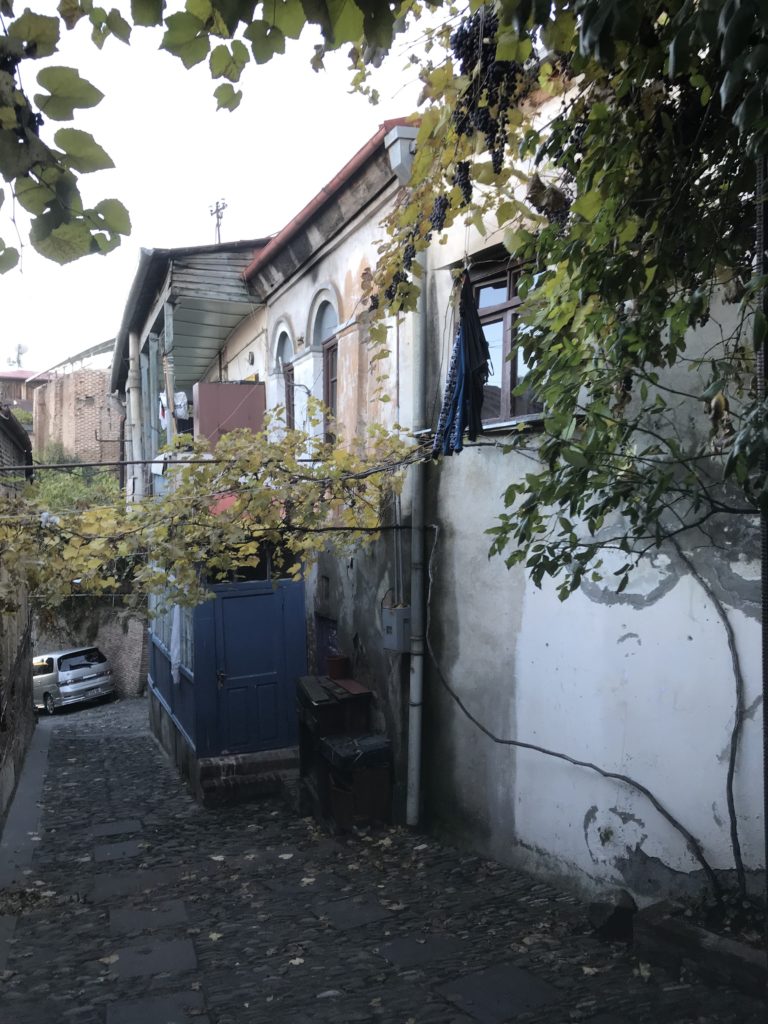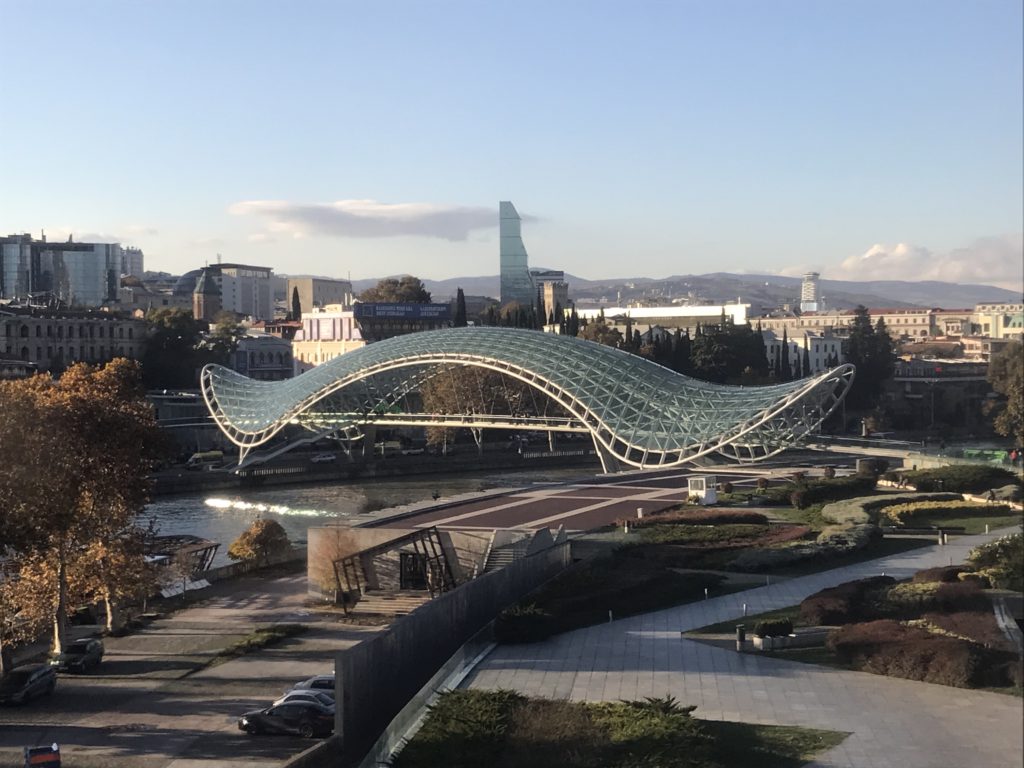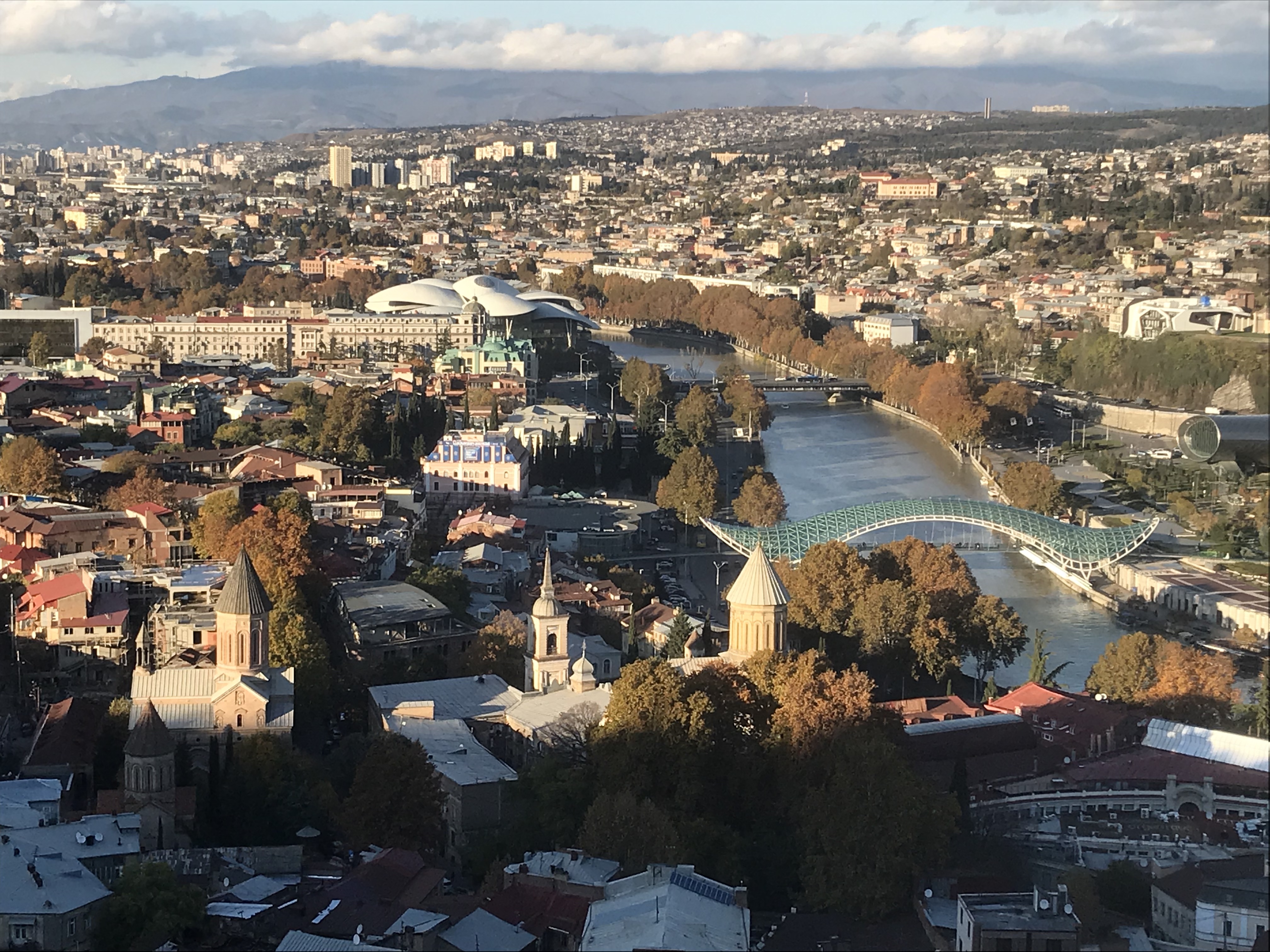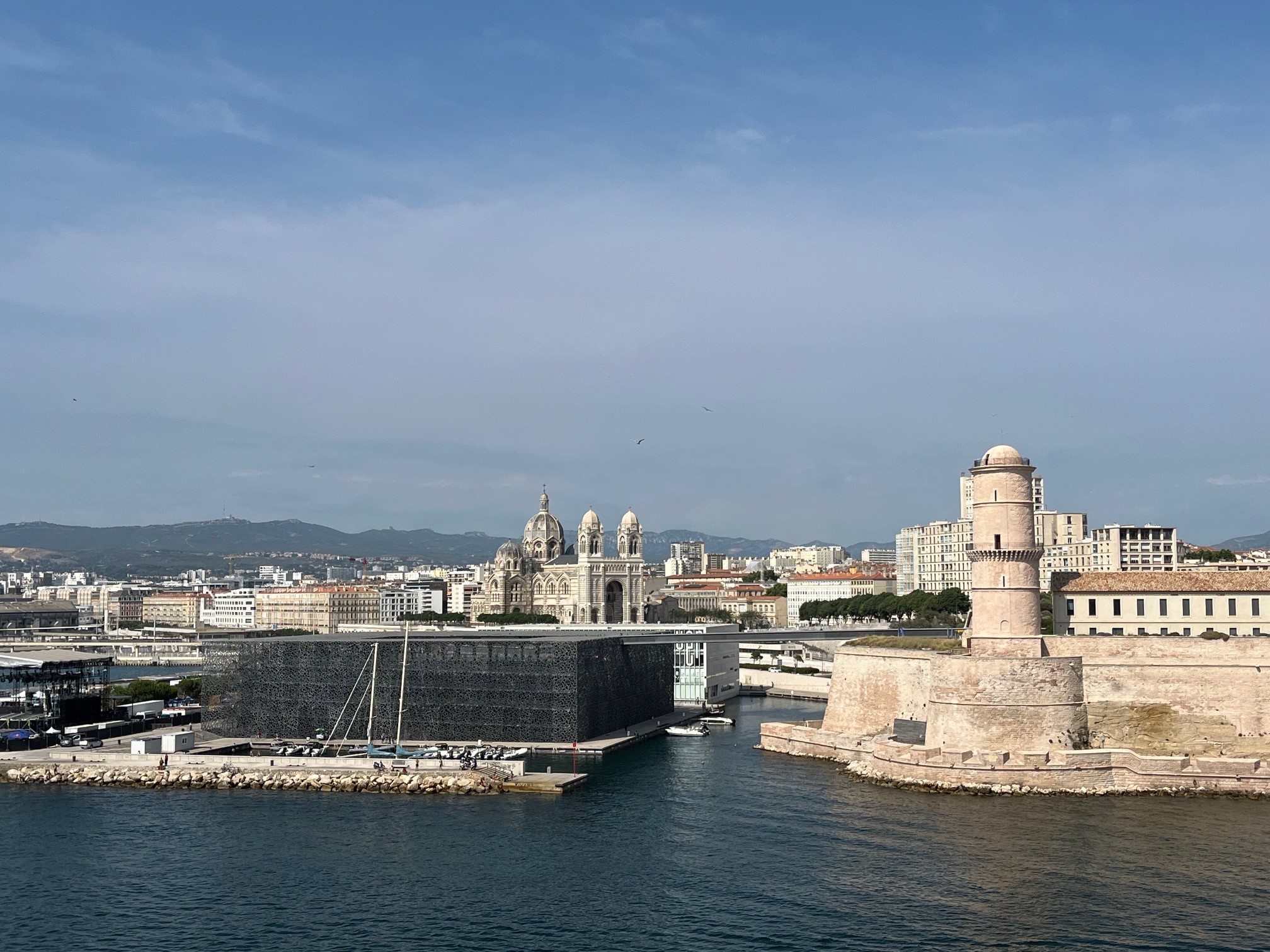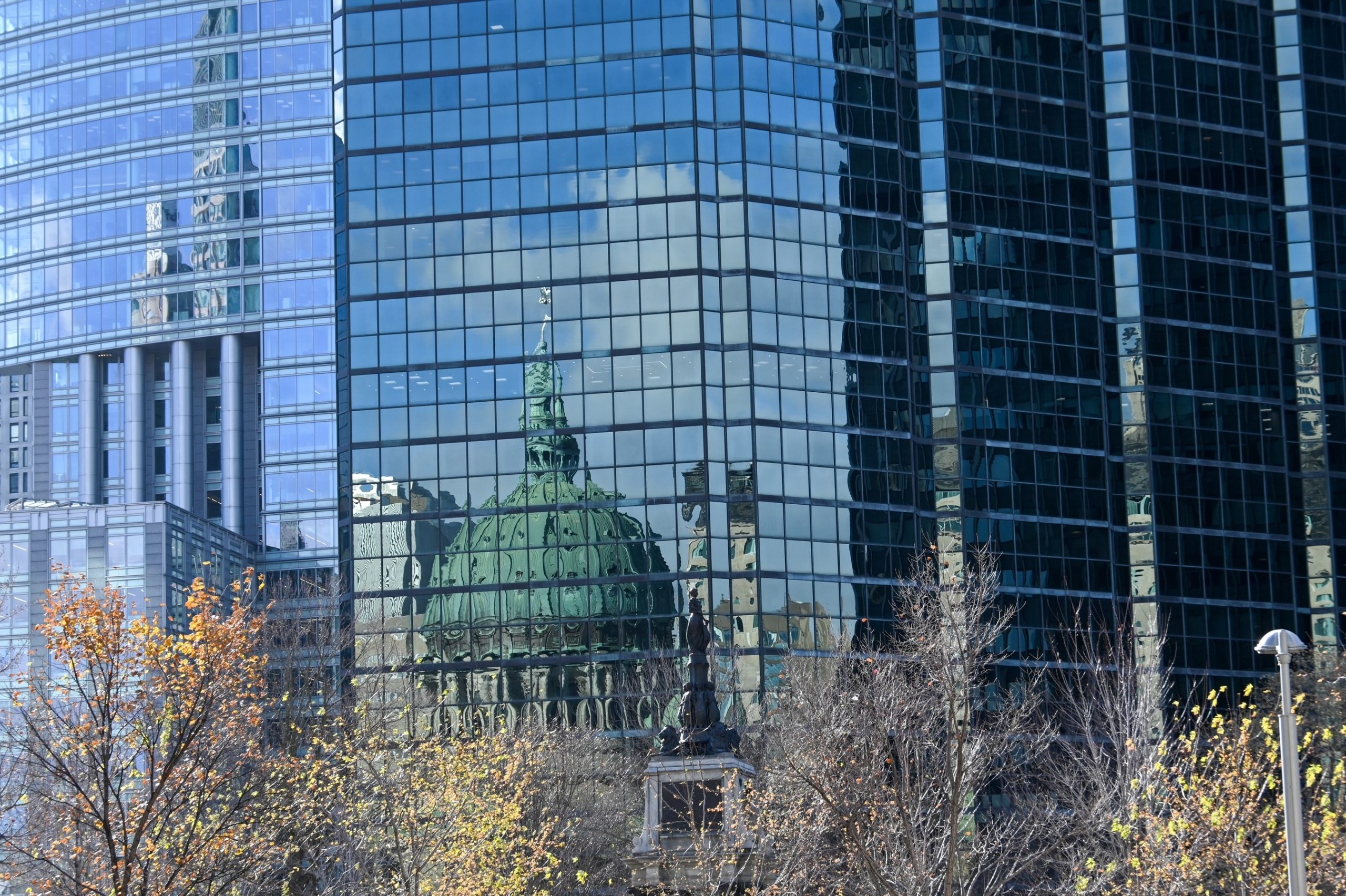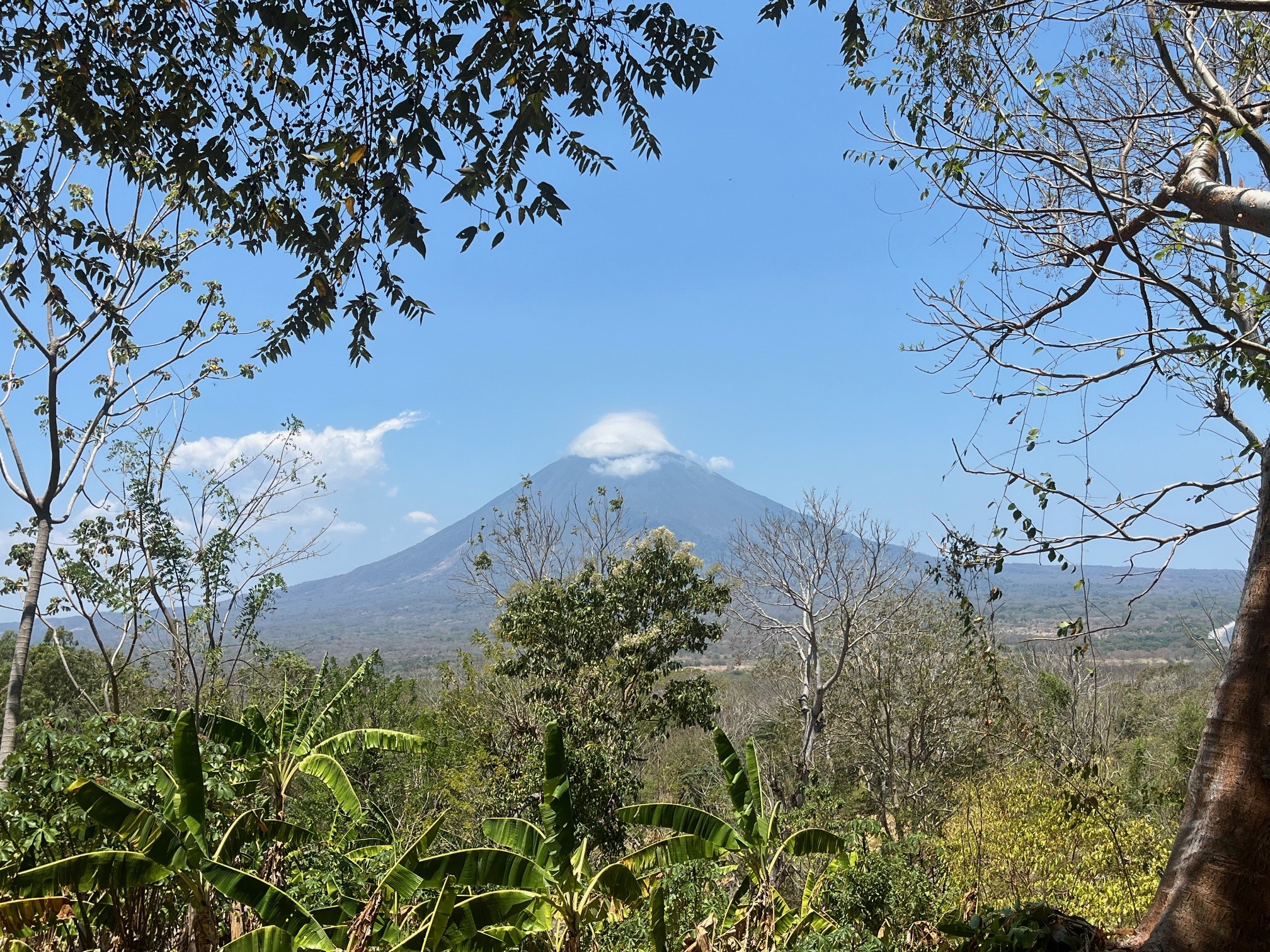Does freedom bring happiness?
After reading « Avelum », Otar Chiladze’s novel, you could have some doubts. The book is likely autobiographical to a large extent and describes the life, love entanglements and frustrations of Avelum, a Georgian poet and writer. Two important historical events for his country have bookended his adult life. In March 1956, people took to the streets to protest Khrushchev’s destalinization – the People’s Father was born in Georgia – but the military opened fire and left many victims on the ground. Avelum saw an injured boy calling for help, but he didn’t manage to rescue him. In April 1989, during the Perestroika, Rustaveli avenue was again filled with crowds clamoring for independence. Avelum’s daughter, Little Katie, full of hope and enthusiasm joined the movement, whereas Avelum observed the revolution from afar, as a disillusioned spectator.
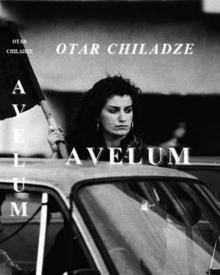
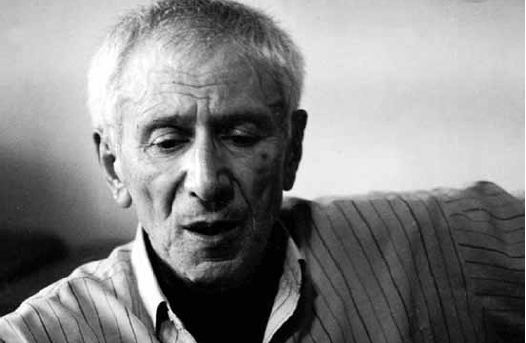
Freedom, Avelum, got plenty of it in his love life, at least more than the average citizen in the former Soviet Union. Married to Melania, Katie’s mother, he falls in love with Françoise, a young French woman visiting Tbilisi’s museum. They will develop a long affair, giving birth to another daughter, but an affair complicated by distance and the administrative hurdles to travel within and outside the Soviet Union. Meetings in Moscow and Paris are long to organize, maintain them in perpetual waiting, offer the satisfaction of a few days together but end up too quickly leaving them with a bitter taste. Avelum, who never broke up with Melania, get involved in a third relationship with the young Sonia in Tbilisi. But at the start of the novel she announces that she will get married with another man, a more stable one.
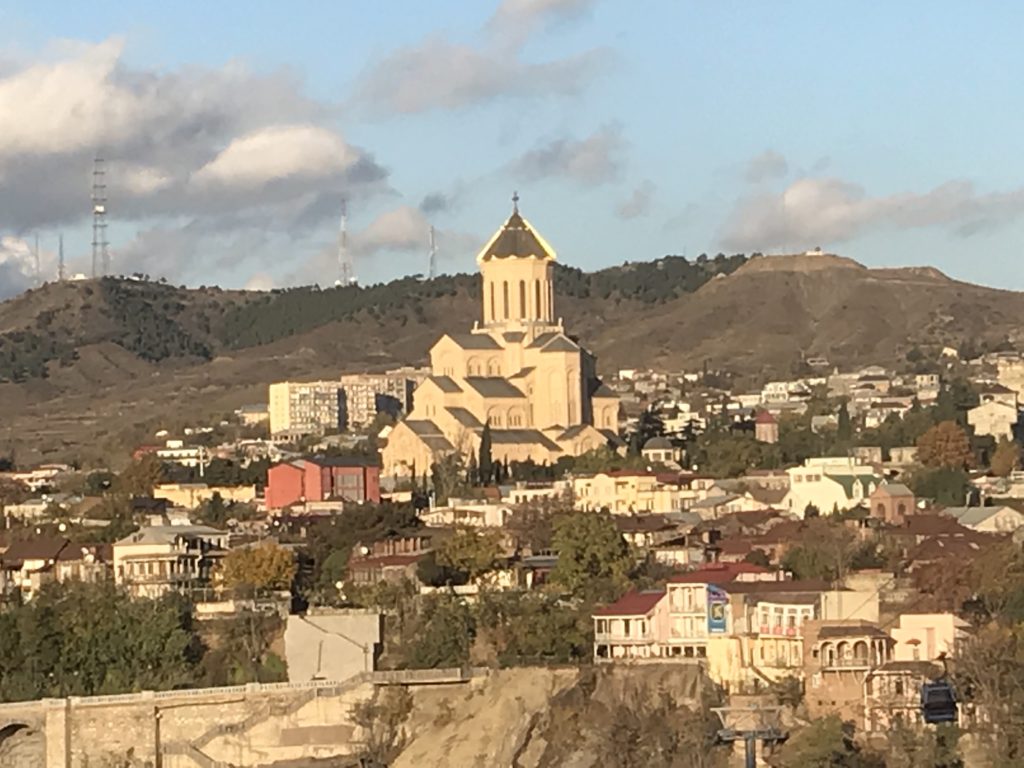
Chiladze’s novel is brilliant, but I did put it down a little bit like if I was ending a night spent drinking too much and discussing with an intellectual rehashing missed opportunities in a smoke-filled bar. The story probably renders well the atmosphere during the dark soviet years, but it doesn’t fit well with the image of a city in full renaissance that I discovered visiting Tbilisi on a sunny Fall weekend.
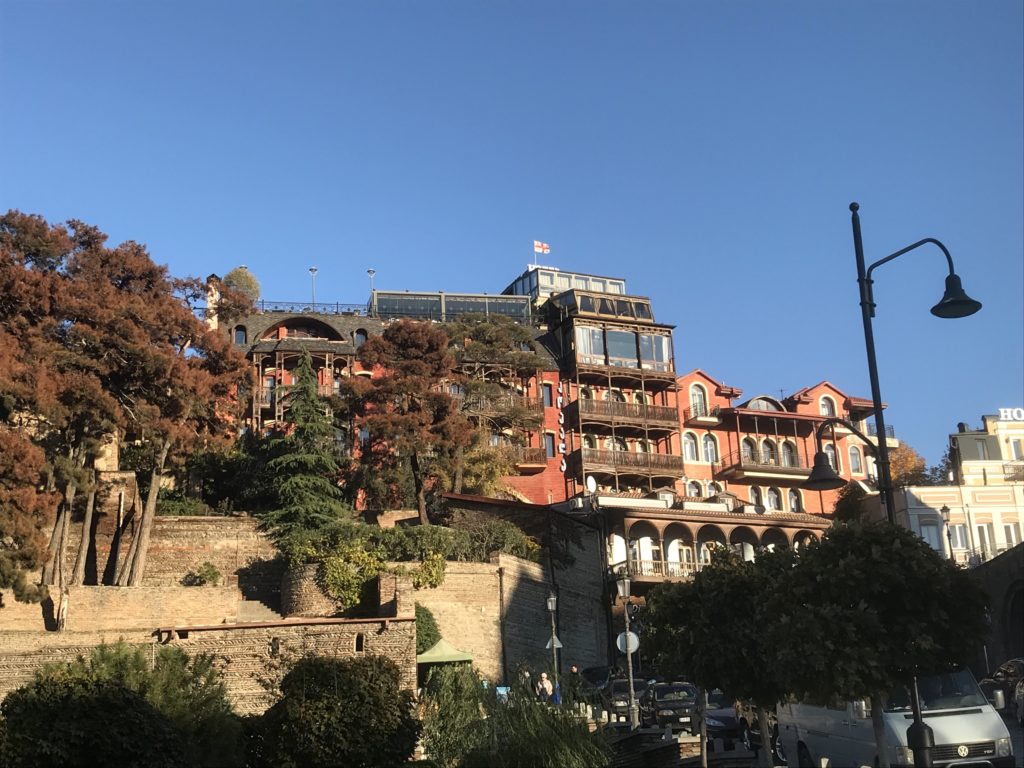
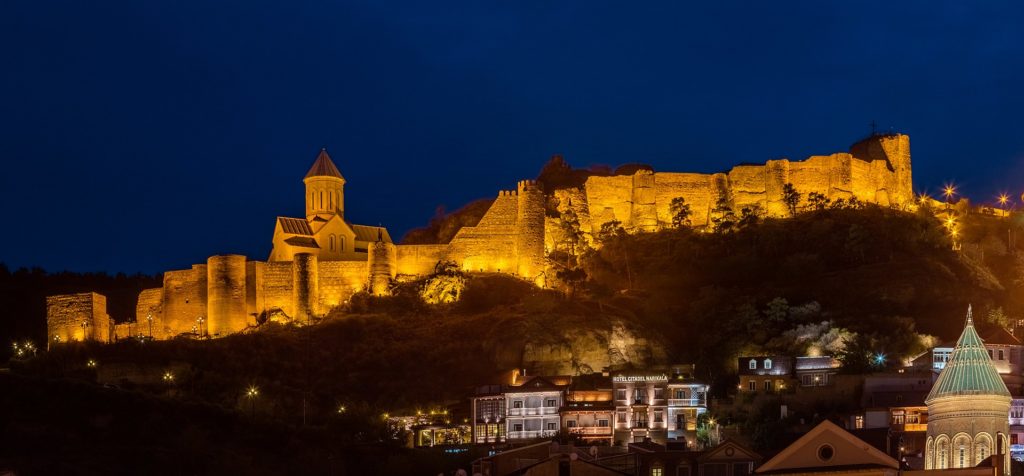
I went up to Narikala citadel using the cable car in which an Iranian couple – she was not wearing a veil – was taking countless selfies. Once on top, I admired the sunset light falling on the old city built around a curve in the Kura river and crossed by a post-modern bridge. I came down by foot, walking down the alleys finding their way across the old wooden houses with their ornate balconies and stark colors. Some seemed on the verge of crumbling while others, splendidly renovated as hotel or restaurant, opened on courtyards where a climbing vine offered some shade. I had a hard time thinking that freedom doesn’t bring happiness.
